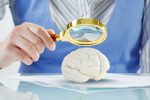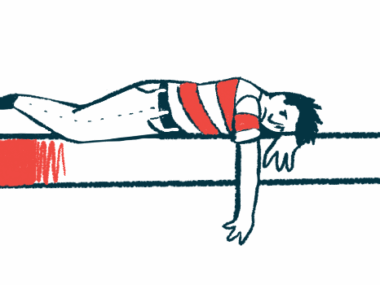Autonomic impairment linked to sleep problems in Parkinson’s
Depression, RBD also contributed to trouble sleeping at night, daytime sleepiness
Written by |

In people with Parkinson’s disease, sleep disturbances and excessive daytime sleepiness (EDS) were associated with the impairment of the autonomic nervous system that controls involuntary bodily functions, a study shows.
Depression and rapid eye movement sleep behavior disorder (RBD), or dream-enacting behavior, also contributed to problems sleeping at night and staying awake during the day.
These relationships were seen in newly diagnosed patients who hadn’t yet been treated, confirming that “a significant number of patients with [Parkinson’s disease] experience sleep disturbances and EDS at an early stage,” the researchers noted in “Factors contributing to sleep disturbances and excessive daytime sleepiness in patients with Parkinson’s disease,” which was published in Frontiers in Neurology.
Parkinson’s disease is mainly known for its motor symptoms, such as bradykinesia (slow movement), resting tremors, and muscle rigidity. Numerous nonmotor symptoms often appear before these symptoms, including sleep disturbances.
Sleep problems, such as trouble falling asleep or staying asleep, or getting restful sleep, can lead to falling asleep during the day, clinically referred to as EDS.
Sleep problems link to motor, nonmotor symptoms
Because Parkinson’s-related factors that influence EDS haven’t been well described, researchers at the Dokkyo Medical University, Japan asked 128 patients to complete two questionnaires — the Epworth Sleepiness Scale, to assess EDS, and the Parkinson’s Disease Sleep Scale-2 (PDSS-2), to measure sleep disturbances.
Participants were divided into four groups based on the results: 21 had both EDS and sleep disturbances; 14 had EDS, but without sleep disturbances; 29 had sleep disturbances without EDS; and 64 had neither EDS nor sleep disturbances. The researchers then compared each group’s assessments of motor and nonmotor symptoms with sleep data.
Participants with sleep disturbances had significantly higher scores for depressive symptoms, as assessed with the Beck Depression Inventory-II (BDI-II), than those without sleep disturbances, but didn’t differ in those with or without EDS.
Both EDS and sleep disturbances were associated with a probable history of RBD, as measured by the RBD Screening Questionnaire (RBDSQ-J). There were no differences in RBD between those with only EDS or sleep disturbances as well as those without EDS or sleep disturbances.
Compared with the other three groups, the participants without EDS or sleep disturbances had significantly lower (better) scores for autonomic function. As assessed using the Scales for Outcomes in Parkinson’s Disease-Autonomic (SCOPA-AUT), these questions focused on symptoms involving the digestive tract, urination, heart function, body temperature, eye pupil dilation, and sexual function.
Disease duration was shorter in those with neither sleep disturbances nor EDS than in the other three groups, but not significantly. Likewise, nonsignificant scores for sense of smell or heart-nerve function tended to be worse in EDS patients and restless leg syndrome was a little more prevalent in those with EDS or sleep disturbances than in those without either of them.
No significant differences were found between the groups regarding age, distribution of men and women, the number of newly diagnosed patients, disease severity, motor function, cognitive function, sense of smell, coexisting medical conditions, and nerve-heart function. The levodopa equivalent dose, the combined dosage of all Parkinson’s medications, was also similar across the groups.
Compared with patients without sleep disturbances or EDS, the SCOPA-AUT score for autonomic impairment significantly contributed to sleep disturbances or EDS in patients with these symptoms. Scores for depression, RBD, and autonomic dysfunction were also independent contributors in those with both sleep disturbances and EDS.
In a subgroup of 57 patients who’d yet to receive treatment, the SCOPA-AUT autonomic score independently contributed to sleep disturbances, but not EDS. Depression and autonomic impairment were independent contributors in untreated patients with both sleep disturbances and EDS.
“Autonomic symptoms were independent contributors in [Parkinson’s disease] patients with sleep disturbances or EDS,” the researchers concluded. Further, “RBD symptoms and depressive symptoms, in addition to autonomic symptoms, were independent contributors in [Parkinson’s disease] patients with both sleep disturbances and EDS.”



